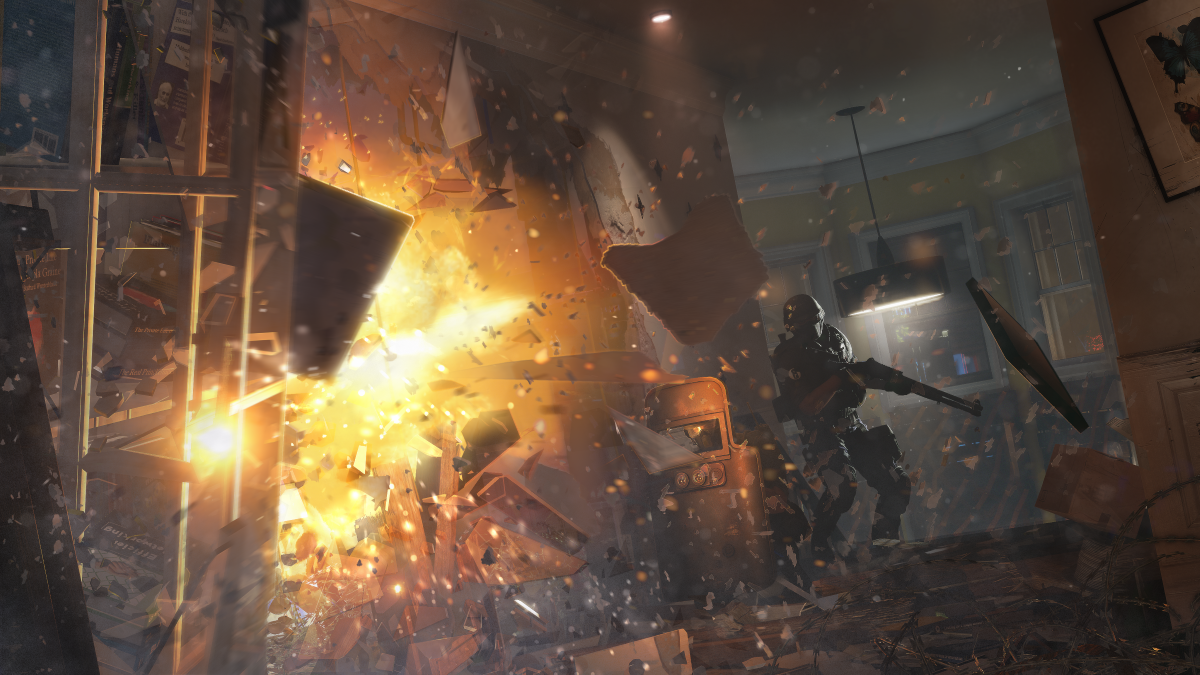Microsoft Buys Havok From Intel
Microsoft continues to expand its gaming profile with its latest acquisition of Havok, one of the most prominent game technology companies in the industry. Before Microsoft, Havok was owned by Intel, which bought the company in 2007 for $110 million.
Havok's price was unknown, but Microsoft has plans to use its latest purchase for more than just games; it highlighted other uses in its announcement, such as Visual Studio and Microsoft Azure.
However, Havok is still deeply rooted in games. Its latest product, Havok FX, is currently used in Rainbow Six: Siege from Ubisoft. By adding the company to the fold, Microsoft believes that it can add another layer of quality to its own games. Havok's technology is used in some of today's most popular games including Destiny, Middle Earth: Shadow of Mordor, and Dragon Age: Inquisition, to name a few.
Even in an age when console exclusivity is a rarity, the Xbox One still has a few aces up its sleeve, most notably Forza Motorsport and the Halo series. These two franchises alone attract a great number of fans. Combine that with Microsoft's work with DirectX 12 and Havok's long list of clients in the gaming industry, and the purchase looks to be a promising venture for the two companies.
Follow Rexly Peñaflorida II @Heirdeux. Follow us @tomshardware, on Facebook and on Google+.
Get Tom's Hardware's best news and in-depth reviews, straight to your inbox.
Rexly Peñaflorida is a freelance writer for Tom's Hardware covering topics such as computer hardware, video games, and general technology news.
-
Larry Litmanen Forza is amazing. Man i just wish MS could buy out Mario from Nintendo somehow.Reply -
Larry Litmanen ReplyI believe we can admit that Nvidia should be worried.
Why, MS and nVidia have similar goals, Intel and nVidia on the other hand are both hardware makers. -
TechyInAZ ReplyI believe we can admit that Nvidia should be worried.
Why, MS and nVidia have similar goals, Intel and nVidia on the other hand are both hardware makers.
I was going to say the exact same thing. Why? NVidia is a hardware provider.
If you mean gameworks and PhysX then still, why? Because those can be implemented into any game if a game dev desires it. -
alidan yay... here's hoping im proven wrong and the license it out and allow it on older direct X versions, but i see nothing good from this at all.Reply
either microsoft will limit it to dx 12 only, or they will make it first party exclusive and console only...
would love to be proven wrong. -
photonboy NVidia would only be worried if this somehow increased AMD GPU sales which seems incredibly unlikely.Reply
As for PhysX, well if Havok got better it could make someone choose an AMD card instead since the NVidia PhysX checkbox could disappear.
Having said that, Havok physics has existed for a while now so unless NVidia does something great with it I don't think this will affect sales much of AMD vs NVidia. -
epobirs Replyyay... here's hoping im proven wrong and the license it out and allow it on older direct X versions, but i see nothing good from this at all.
either microsoft will limit it to dx 12 only, or they will make it first party exclusive and console only...
would love to be proven wrong.
There is no reason to expect they would. They didn't limit themselves to Intel architecture under that ownership and Microsoft is becoming very strongly a multi-platform company. If anything, I'd expect Microsoft to push for them to be the premier DX12 middleware with strong support for porting to non-DX platforms. This is still a win for MS because it encourages developers to originate on DX.
If Microsoft was looking for something to bolster their own products exclusively, Havok is exactly the wrong choice for that. -
Karadjgne If this is a win for anyone, I suspect that it would be for AMD. With MS firmly in the middle between Intel and AMD, it'll mean better integration of havok software, AMD's goto pseudo physX. Between DX12 advancements and better access to havok, the new HBM vram etc, if AMD decides to follow their trend and keep prices down, nvidia might be in a little trouble,forcing price drops to remain competitive. Either way, we as a consumer win with this move.Reply
